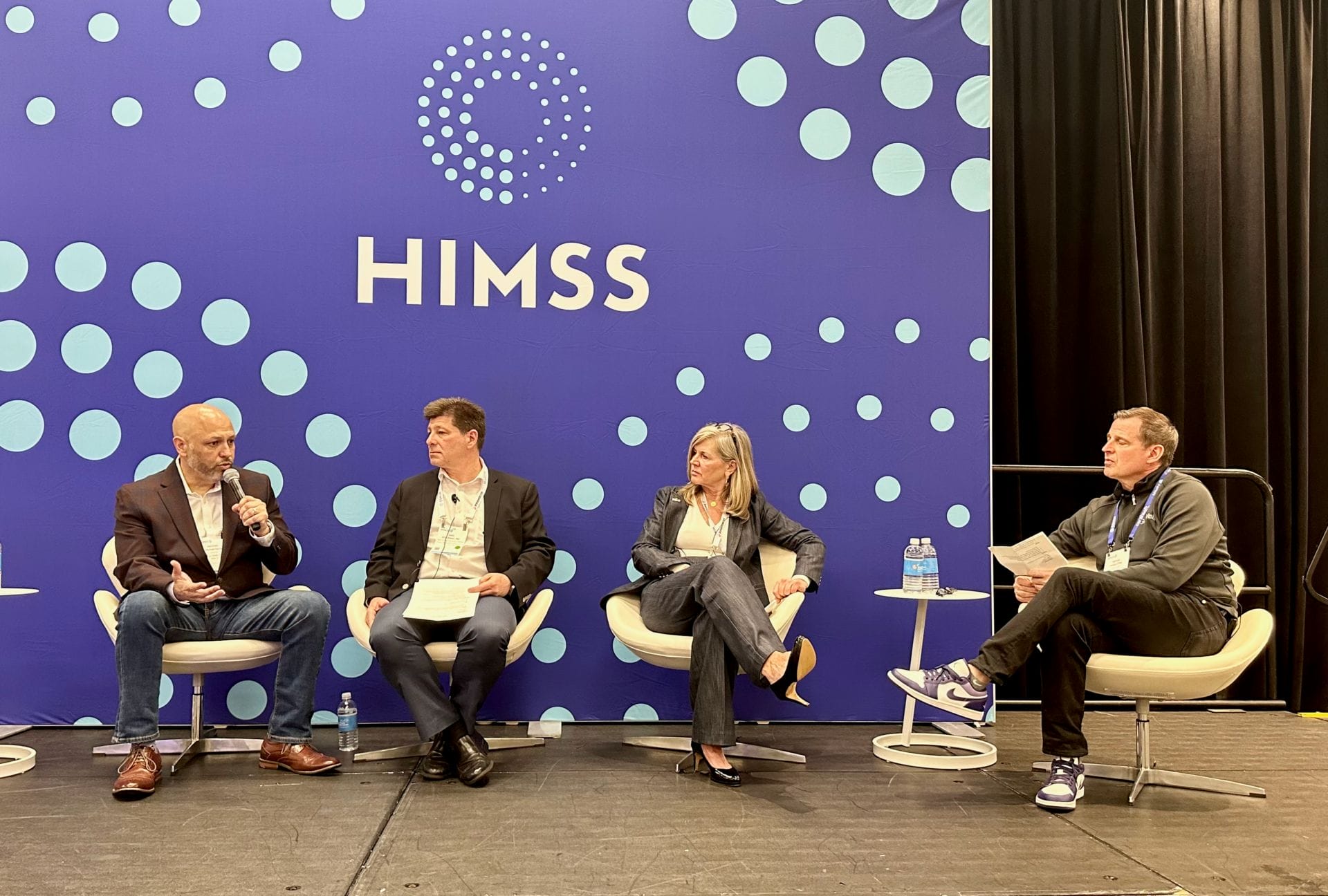
As usual HIMSS was a whirlwind of health leaders, vendors and overpriced coffee – seriously $7.50 for a latte. But despite coffee prices, the event felt like it had returned to post-pandemic highs as more than 35,000 professionals convened in Orlando for the largest gathering of healthcare technology professionals worldwide.
Like most conferences in the past year, AI was front and center with myriad sessions devoted to the topic, healthy skepticism amongst attendees, but also real work happening to unlock efficiencies and excitement about “game changer” smart applications of AI.
However, the dichotomy of the US healthcare system was also clearly evident. While some organizations were sharing success from sophisticated AI pilots, others were wrestling with foundational challenges like how to get virtual care to geographies with no broadband. That’s right – no broadband internet service. As always, healthcare in the US is truly a tale of two cities.
Of course, my eye was on patient access since Kyruus Health offers a care access platform that helps organizations connect people with the care that is right for them. And there were no shortage of sessions about this critical topic. Many systems have made progress, but it was clear that more work is still needed.
On the hunt for success stories, I attended several access-oriented sessions over the conference. One session, in particular, was chock full of real life lessons and practical advice. Three dynamic leaders joined a panel discussion including, Tressa Springman (Senior Vice President, Chief Information & Digital Officer, Lifebridge Health), Eric Alper (Senior Vice President, Chief Quality Officer and Chief Clinical Informatics Officer, UMass Memorial Health), and Michael Garcia (Chief Information Officer, Jackson Health System).
Here’s my synopsis of their session entitled: “Moving Beyond EHR Based Engagement: Deploying Consumer-Centric Strategies that Truly Empower Communities.”

Access & Engagement Still a Critical Priority
From the start, it was clear that patient access is front and center for all three organizations. And it’s more than just access. According to Eric Alper, “Patient experience is key to our underlying strategy.” Springman added, “Giving tools that patients can use to self-serve goes a long way in building trust.” And not just trust. Alper added, “Patient engagement is key and we believe will help to drive better clinical outcomes.” Not only is it about trust and clinical outcomes, but staffing shortages have made this a requirement. “There are not enough care navigators and we have to automate to get patients what they need,” explained Alper. Garcia explained, “When you need it, care navigation is really important. If a human can’t direct them, maybe a tool can help.”
EHRs Are Not Enough for Access & Engagement
For many organizations – including these three – their EHR has been a foundational part of their access strategies. Yet each leader was emphatic that their EHR alone was not enough. As Springman put it, “Should we expect an invaluable tool for internal clinicians (an EHR) to serve a different purpose (for patients)? We thought that was an overreach.” Garcia put it simply, “We can’t just rely on our EHR.” And Alper agreed, adding, “Epic has great workflows, but another theme is being proactive and getting patients engaged the way they want too.”
Platform & Partnership Plays are the Only Way
With consensus that an EHR alone is not enough, the leaders turned to what was required to augment an EHR to ensure, as Garcia put it, “Working to get the right information at the right time to the right patient.” Each of the three spoke about the need to partner with vendor leaders to augment EHR capabilities. As Springman explained, “Lean into vendors who evolve with you.” She further clarified that it was important to look to vendors who offer platforms not point solutions. “We push hard on platform plays,” she stated. Garcia echoed this sentiment, “I’m always going to talk about platforms. As a CIO I have to manage our suppliers.” Springman agreed, “At the end of the day those (vendor) relationships matter. Can’t do that if you have 400 vendors to manage.”

